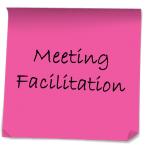I love living in Portland, Maine. Especially this time of year. No really. Despite the cold and snow, we Portlanders are excited for the return of the Valentine’s bandit. For 40 years, some mystery person(s) has gone around the city putting up hearts on monuments, store fronts and office buildings. Waking up on Valentine’s Day to hearts and love in the middle of winter puts us all in a great mood! So let’s talk about how we bring a little more love into the workplace.
For some, the idea of “love in the workplace” might bring up illicit affairs or sexual harassment.
So, let’s look at it from another perspective – the ability to maximize the reward of social connection in the workplace. “Love “in the workplace provides the opportunity to collaborate, build trust and loyal teams, increase retention, create solutions, and engage one another to help the organization and individuals thrive. It can also benefit our health.
The Language Of Love
5 Ways to Say “I Love You” in the Workplace
-
“I will”
Nothing says commitment like these two words. It’s heard often in marriage vows as a promise of future action, as in “Honey, I love you and I will take out the garbage, if you make the coffee every morning.”
How and why can we use it in the workplace? Consider this simple and powerful statement of love – “I will.” The “I” takes individual responsibility, which is so much more impactful than the proverbial “we” that gets thrown around. “We need to get that report done really means “you need to get that report done.”
And “will” is so much more assertive and committed than “will try.”
I remember going to an office supply store looking for a desk chair. There was a floor model I liked. It was dirty and stained, so I asked the clerk if they had any out back and she said, “I could maybe try to go look.” As she just stood there, I felt my eyes and whole body quiver as I tried to nudge her to the storage room to look for a chair I wanted to buy. It didn’t happen. And I didn’t buy the chair.
Using “I will” as much as possible; without over promising (critical point here!) helps your customers, colleagues, and bosses have faith in you. If you deliver on your promise, you’ll build loyalty and commitment. We’ll all feel the love.
-
And
One of my favorite words. Much better than the “but” word, which implies inequality or the less than sign. “But” is often used to share one statement and then tell the truth after. It can cause confusion and distrust. It’s certainly not the language of love. How many of us remember the hurtful phrase after a first date, “I really like you, but…” Yikes! This one word signaled that this was the first and last date. Who really listened to what came after the “but”? I was just planning what pint of Ben & Jerry’s I was going to curl up with!
In the workplace you can hear “but” used the same way. “I really like your report, but…” Am I going to say something positive about your report now or am I going to tell you how it was poorly written and full of typos?
Speak the truth and use the language of love to join phrases that are both true and equal. “And” acts as an equal sign or a bridge word between thoughts, ideas and solutions. It builds collaboration.
For example, I have a client, let’s call her Ellen. As a consultant, I’m paid to offer my ideas to Ellen and her organization. Some of those idea might be helpful, and some, not so much. Some ideas can use tweaking. Ellen is great about repeating what I say, and then adding an “and” offering a different perspective or tweak. I notice how her use of “and” in our conversations keeps the dialogue going, supports our collaboration and creates the ultimate best solutions. Her use of “and” builds my commitment to supporting her.
One final note on the use of the word “and.” Watch using it to dominate a conversation. “…and I like ice cream, and puppies, and springtime, and Jackson Browne, and…” A monologue is the language of love of self; not others.
-
Let me….
“Let me see what I can do.” Or “Let me help you with that.” Love hearing those two words. Many times we’re asked to do something and we start out by saying, “No. I can’t.” Clients, bosses, and colleagues hate hearing those words and often put up a defense or reject your “no” with “Why can’t you?” Usually our responses are “Well we can, but (yuck there’s that word again), we can’t do it today or right now, or have it in red, etc.” Yet if we lead with what we can do we usually build a connection with our clients. Here are a few examples.
“The ice cream is over there.” Change to: “Let me show you where we stock the ice cream.”
“I can’t find your size in red, but I can look out back.” Change to: “Let me look out back to see if I can find your size in red.”
“I don’t think I can finish that report this morning. “ Change to: “Let me work on it this morning. I will let you know by 11 if I can finish it or not. I know I if I can’t get it done this a.m. I can finish up this afternoon.”
“Let me” is an offer of support that builds teams and collaboration in the workplace.
-
What do you think?
Asking people for their opinion, builds connection, identifies roadblocks, and might just give you the solution you need. It shows respect and that you are interested in another’s perspective and demonstrates that you are open and a little vulnerable.
Avoid the phony way of asking for people’s opinions when you are really just trying to influence them with the phrase, “Don’t you think we should…” We’ve learned that when the boss asks that question the answer s/he wants is “yes”.
It’s definitely a perk of being a consultant to be asked for my opinion. I feel needed or valuable. And yet, as a sole proprietor, where do I go to when I need another opinion? WhiIe I know if I just stay within my own mind, I can ruminate over a challenge, or feel I’m right when I’m not, and it can also be a very lonely place. Reaching out to others in your field like colleagues, clients, and friends and asking their viewpoint or assessment of the situation is a great way to open your eyes to seeing the situation very differently. It’s also a great way to build a network of supportive relationships.
Let’s take a colleague/friend of mine, we’ll call her Melissa. I often text, email or actually call Melissa for her opinion on a myriad of issues and always appreciate the reinforcement that I’m on the right track or the gentle push to see the situation from another perspective. Her experience as a training and organizational development professional coupled with being a person who cares about me, helps me be open to her advice. Through the years, we’ve built a strong relationship receiving and giving advice that benefits us both.
-
Eye contact

The physical language of love in the workplace. Putting down your devices and looking at the person when they talk says “You are important. I’m listening to you. You matter, you contribute.” There are cultural exceptions to eye contact And you don’t want to stare and creep the person out. Yet, in many US work environments, eye contact is an easy, timeless way to make the connection and build the bonds with others in the workplace.
So, stop reading this blog and look AND practice the language of love in the workplace to improve your health, build strong relationships, develop
creative solutions, and love your job just a little more.
Share This Blog:





No comments yet.